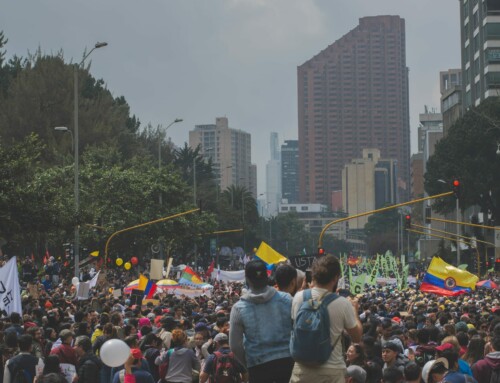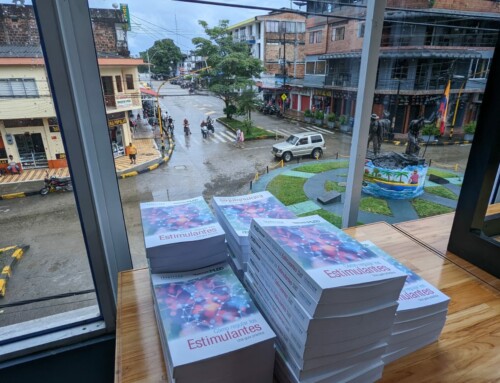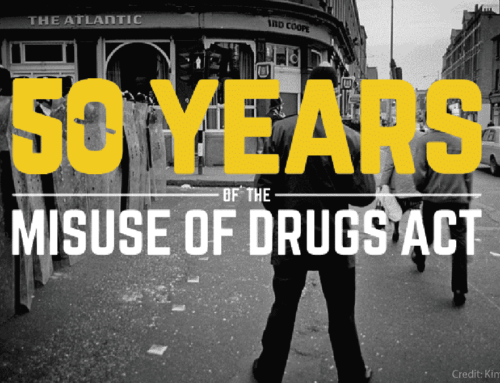On 10 September 2020, we organised a webinar to discuss the interactions between drug policies and the trafficking and exploitation of vulnerable people. We were delighted to be joined by guest speakers; Neil Woods, author of bestseller ‘Good Cop: Bad War’ and Chairperson of Law Enforcement Action Partnership (LEAP UK); Coletta Youngers, Senior Fellow at the Washington Office on Latin America (WOLA); and Ester Kincová, Research and Policy Officer at Transform and co-author of the briefing. This webinar coincided with the launch of our groundbreaking new briefing ‘Reforming drug policies to reduce trafficking and exploitation of vulnerable people’. The key messages are outlined below.
THE SYSTEM IS BROKEN
Over 1,100 children were exploited in the UK’s illegal drug trade last year. Our new briefing seeks to open up an important and long overdue conversation about how drug policy reform can reduce opportunities for the trafficking and exploitation of young and vulnerable people.
The relationship between the illegal drug trade and modern slavery is complex and varied. It includes:
- The trafficking of young and vulnerable people for forced labour to work in drug ‘farms’.
- The exploitation of young and vulnerable people to transport and sell drugs, including the exploitation of women and girls in drug supply, as well as the ‘county lines’ child exploitation phenomenon.
- Criminalising vulnerable people, marginalising them and steering them away from important support mechanisms.
The briefing also proposes new ways of addressing these harms. We argue that legally regulating the production and supply of drugs would remove profit motive and opportunity for exploitation in the drug trade. Through legal regulation, we can apply strict labour standards to protect workers the way we do in other industries.
WOMEN’S STORIES
Women all across the world are frequently coerced into performing low-level drug activities (drug dealing or smuggling, or cultivating plants) and are disproportionately imprisoned for drug offences.This can have a negative impact on children, who are either left without their mothers or are in prison alongside them.
WOLA have sought to tell the stories of women who have been imprisoned for drug offences to show the human cost of current drug policies in Latin America, where punitive drug laws are having a disproportionate effect on rural and poor women. Many are tricked and deceived and are set up as decoys: organised crime groups (OCGs) alert police that these women are smuggling drugs in order to draw attention away from much bigger operations elsewhere.
Coletta told the story of a woman in Mexico, who harvested cannabis illegally for many years. She spent ten years in prison for taking a small packet of drugs over the border in order to pay for her child’s medical bills.
Another woman Coletta has worked with, this time from Costa Rica, was forced to take drugs into prison by her partner and was sentenced to 8 years in prison — despite deciding to turn the drugs over to the prison officers upon arriving. Many are forced to agree to a plea bargain, without legal defence.
As we describe in the briefing, such women are considered to be expendable to OCGs and easily replaced, and are therefore particularly vulnerable to exploitation. These women are often survivors of domestic violence and experience substance issues. Many get involved in the drug trade out of economic desperation.
THE PERSPECTIVE OF AN EX-UNDERCOVER COP
Neil – a longtime friend of Anyone’s Child – spent years fighting on the frontline of the drug war as an undercover police officer, which led him to realise that the only way to protect young and vulnerable people from the harms generated by the illegal drug market, is by taking the power and profit motivation away from organised crime groups, through legally regulating the drug market.
He spoke about county lines in the UK, and how children and vulnerable people are exploited to transport drugs across the UK.
“We have to be clear: the origins of county lines is the success of police disrupting supply.”
Neil described a harrowing story whereby he infiltrated an OCG who had taken over a town after the police in the area had successfully arrested all the other groups, leaving a void for them to fill. The operation took seven months and Neil gathered evidence against 90 people leading to the arrest of everybody involved in the trade in the town, including the group leaders. After this, he got a phone call explaining the results of the arrests: “We managed to interrupt the drug supply for almost 2 hours.”
Neil explained how, around the world, police are always arresting drug dealers — and OCGs are getting increasingly manipulative and violent in their response. In the UK, the response has been the increasing use of children: they’re easy to groom, provide cheap labour, and stop crime group leaders getting caught.
“This is what prohibition has done. It has corrupted our society so much that organised crime are willing to do things that, in the past, they have not done.”
Neil ended his speech with an uncomfortable truth: a couple of hundred children were rescued earlier in the year, following successful police raids. But where they are rescued, more are recruited to fill the gaps.
CHANGING THE DEBATE
Neil also explained that prohibition exacerbates the exploitation of vulnerable people as money made by OCGs from the drug trade is reinvested in other criminality. “The drug market is the bank of international organised crime. It makes their other opportunities possible. Drug policy is the way to reduce the power of organised crime.” It is time to have a frank and open discussion about the scale of exploitation that stems directly from drug prohibition and new ways of addressing these harms.
As Coletta poignantly observed, people working on drug policy and those working in anti-trafficking have tended to work in silos. In the drug policy world, we look at things at a systematic level to change policies, whereas in anti-trafficking, much of the focus is on rescuing and supporting victims directly. The perspectives of civil society organisations working on the frontlines of issues around trafficking and exploitation are fundamental to ensuring that the voices of those impacted are centre stage.
We need drug policies that work to move vulnerable people away from the risk of exploitation, not ones that push them towards those dangers. At Anyone’s Child, we believe that with reform, these financial resources could be diverted to mechanisms designed to support, rather than punish, people. Where people have substance use issues, we need to not only avoid criminalisation, but also help ensure a legal source of safe supply that can prevent the kind of interactions that create opportunities for manipulation, exploitation, intimidation and debt.
We hope this is the beginning of many more conversations, collaboration and action.






Leave A Comment